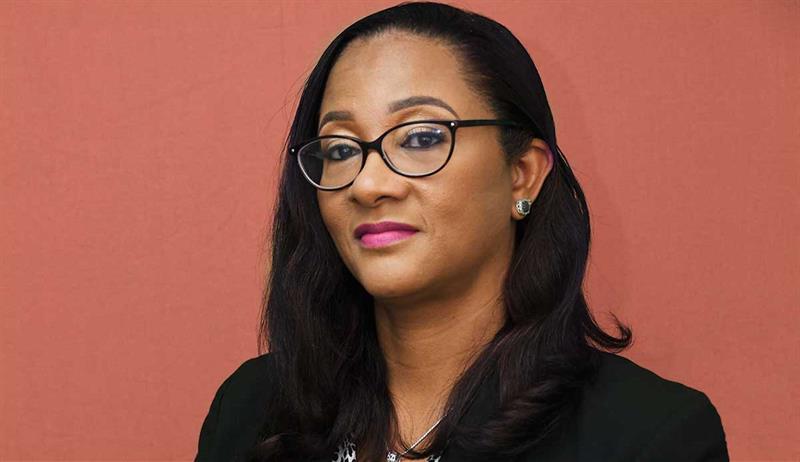“Mate just mad.”
For decades, that phrase echoed through Saint Lucian society, used to brush aside visible distress or abnormal behaviour. It was often the only language available to describe mental illness until a few years ago.
In recent years, Saint Lucia, like much of the world, has begun to witness a shift. Mental health, once shrouded in stigma and silence, is becoming part of national discourse. But the question remains: Are mental health conditions genuinely on the rise, or are we just finally giving name to what was always there?
The national response
World Mental Health Day, observed globally on October 10, was commemorated this year under the theme Access to Services: Mental Health in Catastrophes and Emergencies. In Saint Lucia, the observance was marked by renewed government commitment to improving mental health care. The Ministry of Health and Wellness in an October 21 statement acknowledged that, “the COVID-19 pandemic significantly intensified the mental health crisis across the Americas.”
In response, community-based mental health teams, comprising psychiatrists, nurse practitioners, and other professionals, now conduct scheduled visits for ongoing care. Additionally, the ministry has created the post of Director of Mental Health, intended to strengthen leadership and coordination of mental health services across the island.
These are important steps, but as professionals work to expand access, advocates say the deeper challenge may lie in confronting long-standing attitudes.
Mental health is not a trend
Jaime Young, National Mental Health Focal Point for Let’s Unpack It x UNICEF, emphasised the growing recognition of mental health as vital to overall well-being.

“For me, I’d say it’s your emotional well-being, which you can imagine is very important because it influences everything we do,” she explained.
The young advocate told the St. Lucia Times she has observed that while attitudes are shifting, the journey is far from over. “Locally, I’d say we’re becoming more open to the idea that [mental health is] a part of overall health… But I think we still have a long way to go.”
When asked about the idea that mental health has become a “trendy diagnosis,” Young pushed back but remained nuanced. “Mental health is not a trendy diagnosis, first and foremost.” Rather, she pointed to historical underreporting due to stigma, lack of support systems, and public discomfort.
“What I would say is, especially with the advent of social media, people have taken it upon themselves to sort of self-diagnose mental health conditions,” she added, noting that some misuse mental health terminology without clinical evaluation. “But that’s still a very, very small set of people.”
The legacy of stigmas
Young has also recognised that, despite the growing recognition, mental illness remains taboo for many in Saint Lucia.
“Oh yeah, absolutely,” Young confirmed when asked if mental health is still seen as a ‘foreign’ issue. “It’s one of the barriers that we face — the idea that if you’re struggling mentally, you’re weak.”
What’s worse, she noted, is that sufferers often receive no empathy. “If I sprain my ankle… ‘you should go and rest’… But if I come in and say I’m really struggling mentally today… the response is like, ‘get over it.’”
She notes that this lack of understanding discourages people from seeking help — even when services exist: “Even if you have resources… if people are afraid to go to them, then we’re still not solving the issue.”
It was always there
In response to a question about whether there has been a rise in mental health conditions or if we are recognising what’s long been overlooked, Young said, “I think that’s what it is. Now we have more professionals… who can now put a name to maybe the behaviours we have been seeing for years.”
In the absence of diagnosis or education, generations of Saint Lucians assigned their own explanations to unexplainable behavior — often dismissing it as moodiness, bad character, or simply “madness”. Young recalled how easily these labels were applied. “It goes as if it’s a personality thing… when really and truly, it could have been a mental health disorder.”
She pointed out that mental illness often doesn’t present the way people expect it to. It shows up subtly in how people interact, or cope with daily life. “That’s the thing with mental health,” she noted. “It manifests in relationships, it manifests in behaviours.”
The difference now is not necessarily an increase in suffering, but a growing capacity to understand it. With more trained professionals on island and increasing advocacy, the once-vague refrain of “something wrong with them” is finally being named and treated for what it truly is.
Breaking the cycle
Still, certain stigmas are proving hard to shake. Young believes that changing language and attitudes will take time. “Honestly, I don’t know that I can put a time frame to it, but I absolutely believe it is possible.”

She drew parallels to past public health campaigns. “I like to use the example of HIV and AIDS… It was a deliberate [effort]… so much so that as an adult now, I remember campaigns.”
But shifting mental health narratives will require more than awareness, she said. “We need an education drive. We need a lot of things.”
Until then, everyday language can either heal or harm. “Sometimes you catch yourself saying, hey, ‘I’m mad’. And then I have to be like, no, that’s not how we should be approaching this.”
For Young and other advocates, reframing how we speak and respond is critical. “You can have the resources… but if your first comment is that ‘she must be mad’, you’re undoing all the work that we’ve done.”
And while advocates continue doing the work on the ground, policymakers are also setting their sights on reform. Chief Medical Officer Dr Sharon Belmar-George shared that, “Our Mental Health Policy should be finalised by the end of this year and we’ve also done a review of our mental health legislation which we should also have the first draft [of] by the next quarter.”
It’s a signal that real, systemic change may finally be on the horizon, if met with equal shifts in public mindset.




